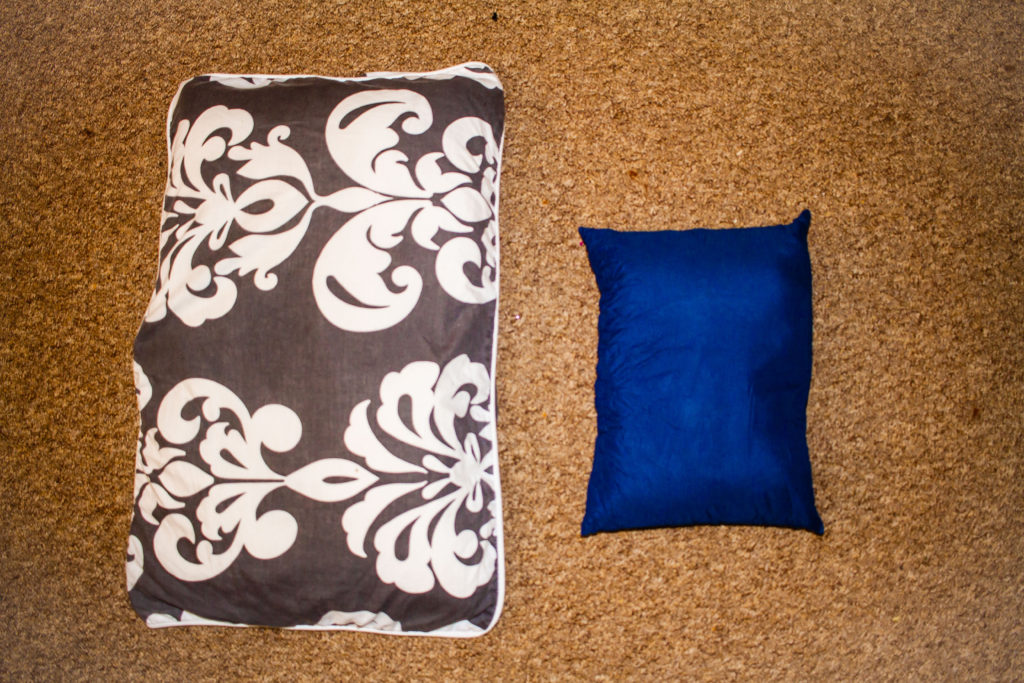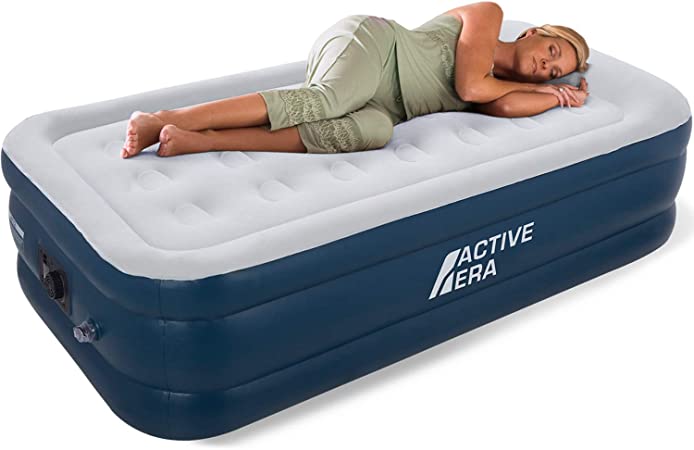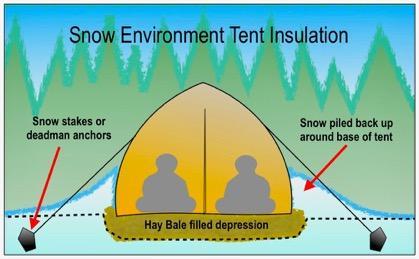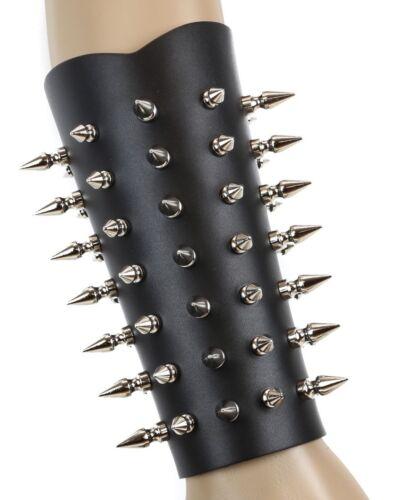So, you’ve gone to your first music festival and you are all prepared!
You have your tent set up, with your sleeping bag and a decent sized pillow (none of those tiny camping pillows for you!)
And most importantly, you didn’t forget your air bed!

You’ve heard enough people complain about sleeping on roll mats, or (heaven forbid) laying directly on the cold, hard ground, and you know that’s not the life for you.
So you got yourself a double air bed and, having gotten yourself all cozy, you fall asleep as soon as your head hits the pillow, even with the loud noise of the campsite around you.

But then you wake up in the morning (with or without hangover, case dependent) and you realise you aren’t laying on your nice, comfy airbed!
Instead, you’re laying on the rough, freezing cold floor because your air bed has deflated overnight.
You check that it has no leaks, pump it back up the next night and go to bed satisfied that you will have a great nights sleep.
But again, you wake up again laying on the ground and with growing back pain. You air bed keeps deflating and you have no idea why.
So what is the problem? Why does this keep happening, and more importantly, how can you fix it?
The simple explanation
Basically, the reason your air bed deflated is that the ground is cold.
That’s right, your air bed doesn’t like the cold ground any more than you do.
Okay, so that’s maybe too simple of an explanation; it doesn’t really help you and kind of makes it seem like the issue is a lost cause.
But it isn’t!
There are things you can do to help stop the air bed from deflating and leaving you sleeping in a puddle of deflated plastic.
However, to really explain this, we need to learn a bit more about the science.
The scientific explanation
So, your air bed is filled with air.

And the thing about air is that when it’s warm, it takes up a lot of space.
And when air gets cold, it contracts and takes up less space.
Don’t believe me? (Why wouldn’t you believe me? That’s weird)
Well, here’s a link to NASA agreeing with me.
The other thing about the cold is that is likes to take heat from available sources.
Well, actually warmth likes to travel towards cold places.
Again, don’t believe me?

Well, it’s called the 2nd law of thermodynamics. Look it up.
Or don’t. Because here it is.
Heat flows from hot things towards cold ones and never the other way around.
Explainthatstuff.com
Well okay, the 2nd law of thermodynamics actually states that as energy is transferred or transformed, more and more of it is wasted. The quote above is more of a more practical interpretation of that law.
Whatever, the point is that your nice warm tent is not going to stay that way forever.
The heat from your tent is going to take the quickest route to the cold, which happens to be below you.
Below you in the cold, hard ground.

The ground is going to take that heat from your tent, and that is going to make the air inside your air bed contract and deflate.
What can you do to prevent it?
The simple answer of how to stop your air bed from deflating is to insulate it as much as possible from the cold ground.
The more you can do to stop the heat from leaving the air bed, then the less it will deflate.
You can’t stop this from happening entirely, but you can certainly have an impact.
So I suggest bringing a blanket with you when you go camping.
The blanket isn’t for you however, it’s to place underneath the airbed.
Doing this creates a barrier between the cold ground and the warmth inside the airbed, making it less likely to leave the air bed.

Other advice
While the cold air is an important aspect to explain a deflated air bed, it’s not the only one.
Now, there are some advice articles online that will give you the basic answers:
- Have you exceeded the maximum weight capacity?
- I doubt most people even know what the maximum weight for their air bed is
- I doubt most people even know what the maximum weight for their air bed is
- Does the air bed have an air leak?
- Which was likely your first thought…
But there are some other options that you may not have thought about.
The way you sit or lay on an air bed can disrupt it and this can cause the air bed to deflate.
The more stress that the air bed takes, the more likely it is to get an air leak, and even just a tiny one can be devastating over a long period, say 8 hours while you’re asleep…
Sitting on an airbed will cause a lot of pressure in that one spot and may weaken the material in that area.
Goths Beware
Also, this almost certainly doesn’t apply to you, but if you happen to like the alternative aesthetic, and you wear clothing or jewellery with spikes on, don’t lay on the air bed whilst wearing these things.

I happen to own a pair of shorts with spikes on, and I have been the direct cause of at least 2 air beds being destroyed…
Wrap Up
Your air bed is deflating because the warmth inside of it is seeping into the cold ground.
The way to stop it is to insulate your airbed as best as possible.
Use a thick towel or blanket underneath the airbed to try and trap as much of the warm air inside the airbed.
Also be sure to treat the air bed correctly, don’t handle it roughly or it will risk getting a leak.
Or, you know, you could just get a camping bed instead. That’s always an option as well…


